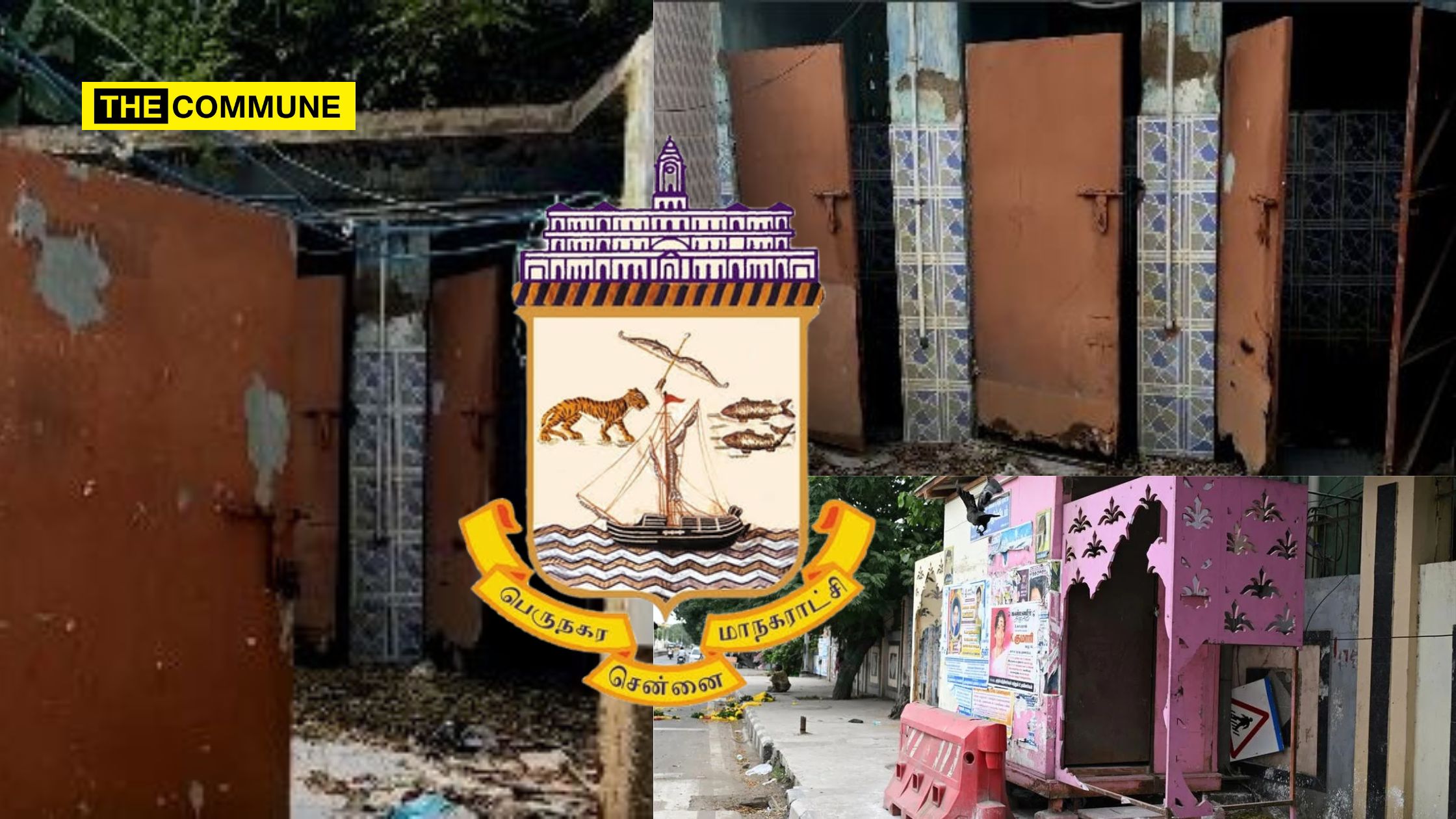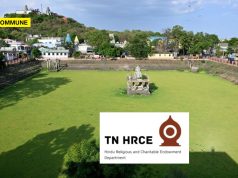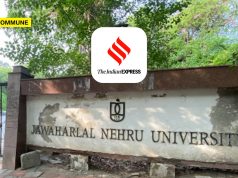
Despite the Modi government’s ambitious ‘Clean India’ initiative, Chennai has fallen short of implementing the Swachh Bharat Mission (SBM), with over ₹621.5 crore spent in five years yet the city’s sanitation goals remain unmet. Abandoned toilets, poor maintenance, and ineffective waste management persist, leading to a low ranking of 199th in the 2024 Swachh Survekshan survey. The city’s continued struggle with open defecation, damaged infrastructure, and lack of accountability reflects more profound issues in monitoring and political will, undermining the national cleanliness drive’s effectiveness at the local level.
Swachh Bharat Mission In Chennai
The Modi government has launched the ‘Clean India’ initiative to improve health and sanitation awareness nationwide. However, state governments have been slow to address key hygiene and public health aspects within their jurisdiction.
A prime example of this is Chennai’s inadequate implementation and maintenance of the Swachh Bharat Mission (SBM), which has led to ineffective sanitation measures and a failure to meet the goals of the national cleanliness drive. Despite substantial financial investment, Chennai’s performance under SBM has been disappointing, with key issues such as abandoned and damaged toilets, lack of maintenance, insufficient infrastructure, poor monitoring, and a lack of accountability.
The Swachh Bharat Mission (SBM) is touted as the country’s flagship program to achieve clean cities, hygienic toilets, waste-free streets, and adequately managed dumpsites. However, after five years and ₹621.5 crore spent under the initiative, Chennai is far from achieving its targets.
Abandoned Toilets and Poor Maintenance
Over 3,000 toilets have been built in areas like Anna Nagar, Nolambur, Kodambakkam, and Adyar since 2020, but many remain abandoned. For example, a 10-room toilet complex on Nolambur’s 4th Main Road is in disrepair, with damaged doors, toilet seats covered in waste, and broken taps. Similarly, another toilet complex on Anna Nagar Third Main Road has deteriorated for two years, with garbage accumulating and entrances blocked by cars. Some toilets, such as those in Villivakkam, have disappeared entirely, replaced by Amma Canteens, while others, like those at Anna Nagar Tower Park, remain closed.
Rising Maintenance Costs, No Improvement in Quality
Advocate N. Rukmangadhan highlighted that according to RTI responses when the Greater Chennai Corporation (GCC) managed the toilets directly until 2021, they spent ₹14 lahks per zone annually. However, in 2022, when they outsourced the maintenance to local contractors, the cost increased to ₹ six crore per zone for the same number of toilets, yet the quality of maintenance did not improve.
Chennai’s Disappointing Performance in Swachh Survekshan
In the 2024 Swachh Survekshan rankings, Chennai ranked a poor 199th out of 446 cities, scoring just 12% for waste processing, 21% for dumpyard remediation, 77% for toilet cleanliness, and 50% for open defecation, despite claiming to be open-defecation free (ODF). Open defecation is still widespread along the Adyar and Kosasthalaiyar rivers, and key areas like GST Road, Anna Salai, and Poonamallee High Road lack public toilets.
GCC Commissioner J. Kumaragurubaran stated plans to outsource the maintenance of all 8,000 public toilets in Chennai to private firms, with third-party quality monitoring. He mentioned that toilets from previous schemes will be refurbished, and performance-based contracts with strict maintenance standards will be introduced. However, one of the major concerns remains the failure to manage waste effectively, as evidenced by the 28 lakh cubic meters of untreated waste at the Perungudi dump yard. The contractor, WeStart, made only 40% progress on biomining and is now facing arbitration over a termination notice.
Weak Monitoring and Lack of Accountability
J.B. Ravinder, a former MoHUA joint adviser, attributed the issues to weak monitoring. He pointed out that Swachh Survekshan surveys are often conducted in the last quarter of the year, with cities hurriedly self-attesting data or showcasing model wards to boost rankings. The lack of rewards for top-performing cities and penalties for underperforming ones has led to disinterest among officials in ensuring the successful implementation of sanitation reforms.
Only cities like Surat and Indore have consistently shown a competitive spirit in these rankings, highlighting the critical need for stronger political will to enforce sanitation and hygiene reforms nationwide.
On paper, @SwachhBharatGov (SBM) is the nation’s flagship scheme for clean cities, hygienic toilets, garbage-free roads and clear dumpyards. In last five years alone, Rs 621.5 crore received through central and state grants was already spent under the scheme in Chennai and yet,… pic.twitter.com/tQ6DWKbkgx
— Omjasvin M D (@omjasvinMD) November 21, 2024
(With inputs from TOI)
Subscribe to our Telegram, WhatsApp, and Instagram channels and get the best stories of the day delivered to you personally.




